Herd health is a critical component of any enterprise. Its importance becomes an even greater part of the farming system when a farm is increasing numbers and pushing the limits of the system. Therefore, with a stocking rate of 2.7LU/ha, putting measures in place to prevent health issues is a vital component of the Newford herd farm plan.
Table 1 and Table 2 give a guideline of the health programme in place. As can be seen, there is a strong focus on the use of targeted vaccinations to prevent issues occurring. The prices listed are a guideline to reflect the associated costs and some slight variance to these may occur.
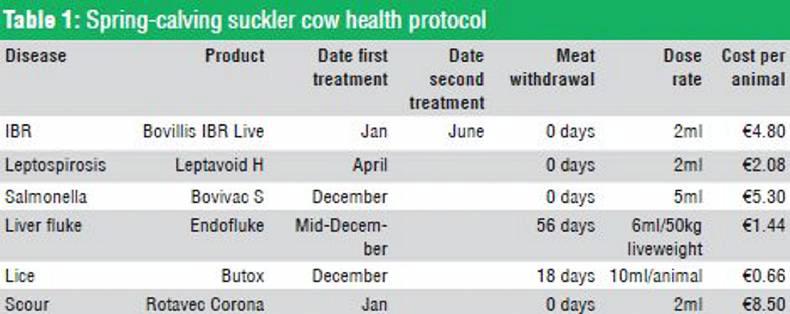
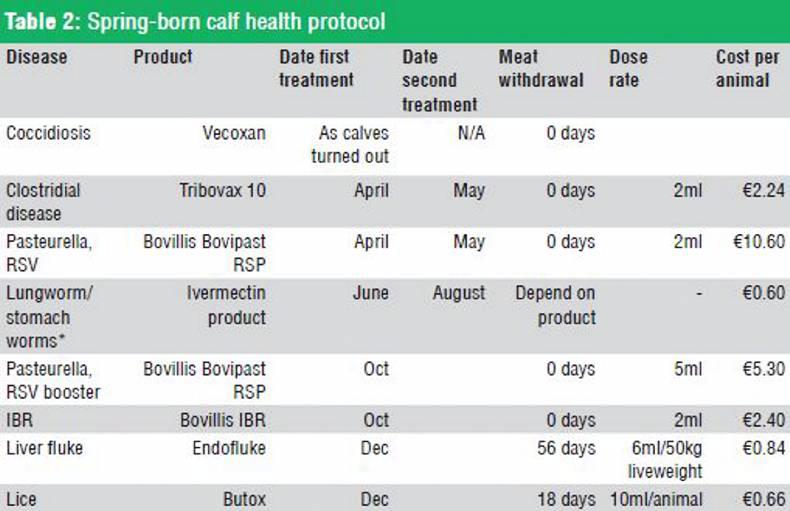
It is also important to note that the vaccinations listed are for cows with only one booster treatment required. The primary vaccination programme, where two shots are required, is in most cases administered to replacement heifers.
As well as the programme listed, cows are also given a mineral bolus in spring and the mineral profile is monitored by blood sampling 10 cows before the start of the breeding season. Dry cow and pre-calving minerals are also offered during the winter as appropriate, with access to cal-mag buckets also available at key risk periods for grass tetany. There is regular contact with the farm’s vet, who is also consulted on areas of herd health as required.
Management factors
The health programme listed is one aspect of a wider health plan for the herd. There are also management practices implemented to reduce the threat of an underlying disease risk gaining a foothold. Aspects such as the stocking rate ventilation in animal housing, space at feeding barriers and hygiene pre- and post-calving are some examples of the areas receiving attention. There is an emphasis on calving, with individual pens cleaned and disinfected regularly and group pens given fresh straw daily. Care is also taken to ensure each calf gets sufficient colostrum and every calf’s navel receives an iodine-based spray.
Biosecurity
Reducing the risk of disease entering from an outside source is also high on the agenda, especially given that the farm is open to a higher number of visitors than the average farm.
Visitors are made aware of the necessary precautions and disinfectant points are in operations. The farm is closed to visitors during calving and any unnecessary contact with animals during the rest of the year is avoided.
The risk of disease entering via animals purchased on to the farm is also considered.
The health status of farms is accessed and animals are quarantined on arrival until farm manager Matthew Murphy is satisfied no risk is present.
Read more
Full coverage: Newford Suckler Demonstration herd
Herd health is a critical component of any enterprise. Its importance becomes an even greater part of the farming system when a farm is increasing numbers and pushing the limits of the system. Therefore, with a stocking rate of 2.7LU/ha, putting measures in place to prevent health issues is a vital component of the Newford herd farm plan.
Table 1 and Table 2 give a guideline of the health programme in place. As can be seen, there is a strong focus on the use of targeted vaccinations to prevent issues occurring. The prices listed are a guideline to reflect the associated costs and some slight variance to these may occur.


It is also important to note that the vaccinations listed are for cows with only one booster treatment required. The primary vaccination programme, where two shots are required, is in most cases administered to replacement heifers.
As well as the programme listed, cows are also given a mineral bolus in spring and the mineral profile is monitored by blood sampling 10 cows before the start of the breeding season. Dry cow and pre-calving minerals are also offered during the winter as appropriate, with access to cal-mag buckets also available at key risk periods for grass tetany. There is regular contact with the farm’s vet, who is also consulted on areas of herd health as required.
Management factors
The health programme listed is one aspect of a wider health plan for the herd. There are also management practices implemented to reduce the threat of an underlying disease risk gaining a foothold. Aspects such as the stocking rate ventilation in animal housing, space at feeding barriers and hygiene pre- and post-calving are some examples of the areas receiving attention. There is an emphasis on calving, with individual pens cleaned and disinfected regularly and group pens given fresh straw daily. Care is also taken to ensure each calf gets sufficient colostrum and every calf’s navel receives an iodine-based spray.
Biosecurity
Reducing the risk of disease entering from an outside source is also high on the agenda, especially given that the farm is open to a higher number of visitors than the average farm.
Visitors are made aware of the necessary precautions and disinfectant points are in operations. The farm is closed to visitors during calving and any unnecessary contact with animals during the rest of the year is avoided.
The risk of disease entering via animals purchased on to the farm is also considered.
The health status of farms is accessed and animals are quarantined on arrival until farm manager Matthew Murphy is satisfied no risk is present.
Read more
Full coverage: Newford Suckler Demonstration herd





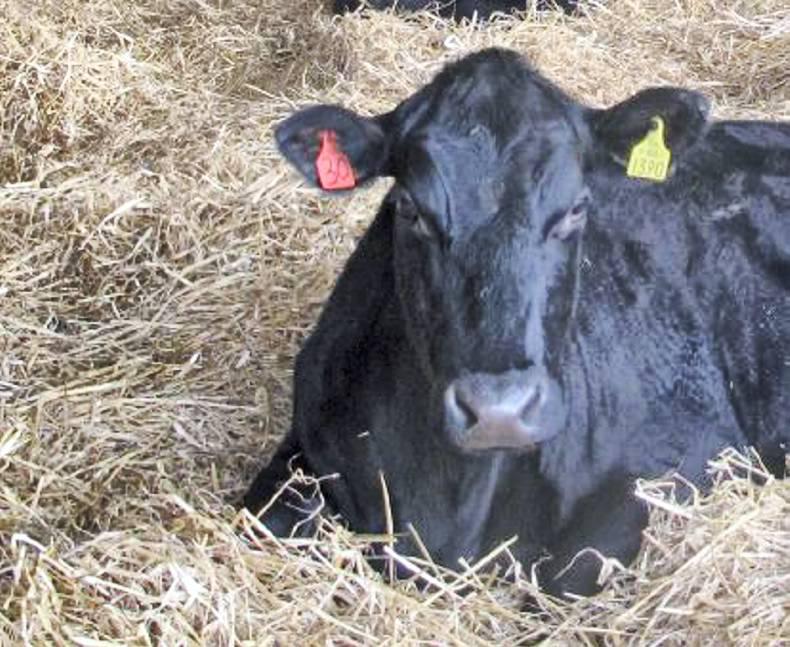
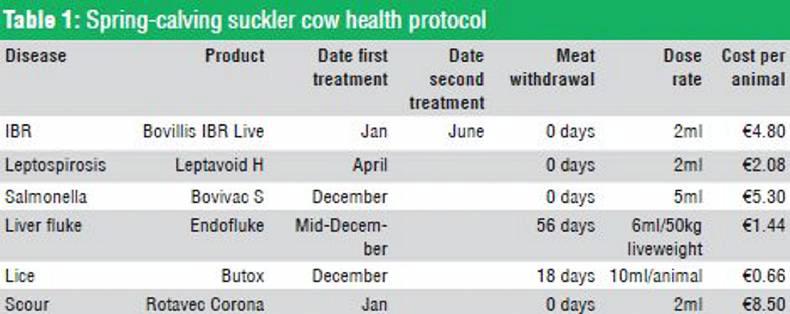
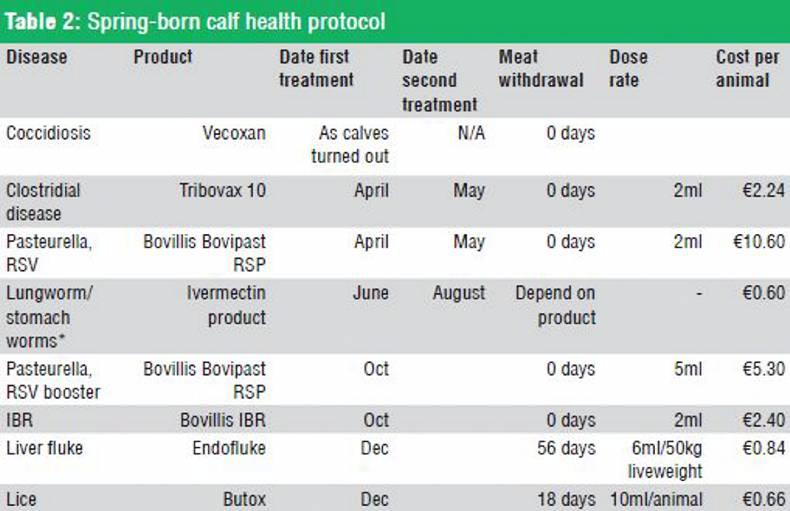

SHARING OPTIONS